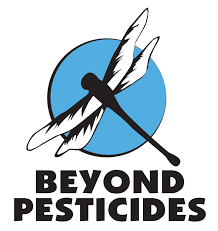Chemycal has been acquired by 3E
Learn MoreChemycal has been acquired by 3E
Learn MoreDiscover how Chemycal PRO helps you boosting your regulatory monitoring:

(Beyond Pesticides, November 2, 2018) A group of leading toxics experts, who published a paper, in the journal PLOS Medicine, on their research on organophosphate exposure during pregnancy and impacts on child development, are calling for a ban on organophosphate pesticides. The study evaluates current science on the risks of this class of compounds, produced by Corteva Agriscience (formerly Dow AgroSciences); its conclusions warn of the multitude of dangers of organophosphates for children, and makes recommendations for addressing these risks. The experts conclude that: (1) widespread use of organophosphate (OP) pesticides to control insects has resulted in ubiquitous human exposures; (2) acute exposures to OPs is responsible for poisonings and deaths, particularly in developing countries; and (3) evidence demonstrates that prenatal exposures, even at low levels, put children at risk for cognitive and behavioral deficits, and for neurodevelopmental disorders.
Among the authors’ recommendations are these:
(*) Governments and subsidiary agencies, including the Environmental Protection Agency (EPA), should phase out chlorpyrifos and other organophosphate pesticides; ban non-agricultural uses of OP pesticides (including in household products); monitor watersheds and drinking water sources of human exposure; promote the use of integrated pest management (IPM) through incentives and training; and establish pesticide use and illness reporting programs.
(*)Healthcare professions and training institutions should implement training and curricula on the health impacts from OP exposures, how to treat acute exposures, and how to educate patients and the public about these hazards and the best means for avoiding them.
(*)Schools of nursing and medicine should incorporate curricula on environmental hazards (including pesticides), and medical boards ought to include environmental health in their examinations.
(*)Agricultural entities should provide training on the handling and application of pesticides, and on worker protection standards; accelerate the development of nontoxic approaches to pest control through IPM; and ensure worker safety through appropriate protective equipment and training.
Developed approximately eight decades ago, initially as nerve gas agents for military use, and later amended for use (at reduced concentrations) as pesticides, organophosphates are widely used for agricultural pest control, but also, in hospitals and other healthcare institutions, schools, and public spaces (e.g., parks, golf courses, playing fields), and for mosquito control. The best-known among the organophosphate pesticides (OPs) — some of which have been proscribed or limited in the past decade or so — are probably chlorpyrifos, malathion, and diazinon . The study authors note that the extensive use of OPs has “led to ubiquitous human exposure.” A recent example of that ubiquity — in which every single home in rural New York State showed the presence of pesticides, often including the organophosphates malathion and/or chlorpyrifos — was covered by Beyond Pesticides.
CONTINUE READING ON beyondpesticides.org
2013 © MyChemicalMonitoring. ALL Rights Reserved. About Us | Terms and Conditions